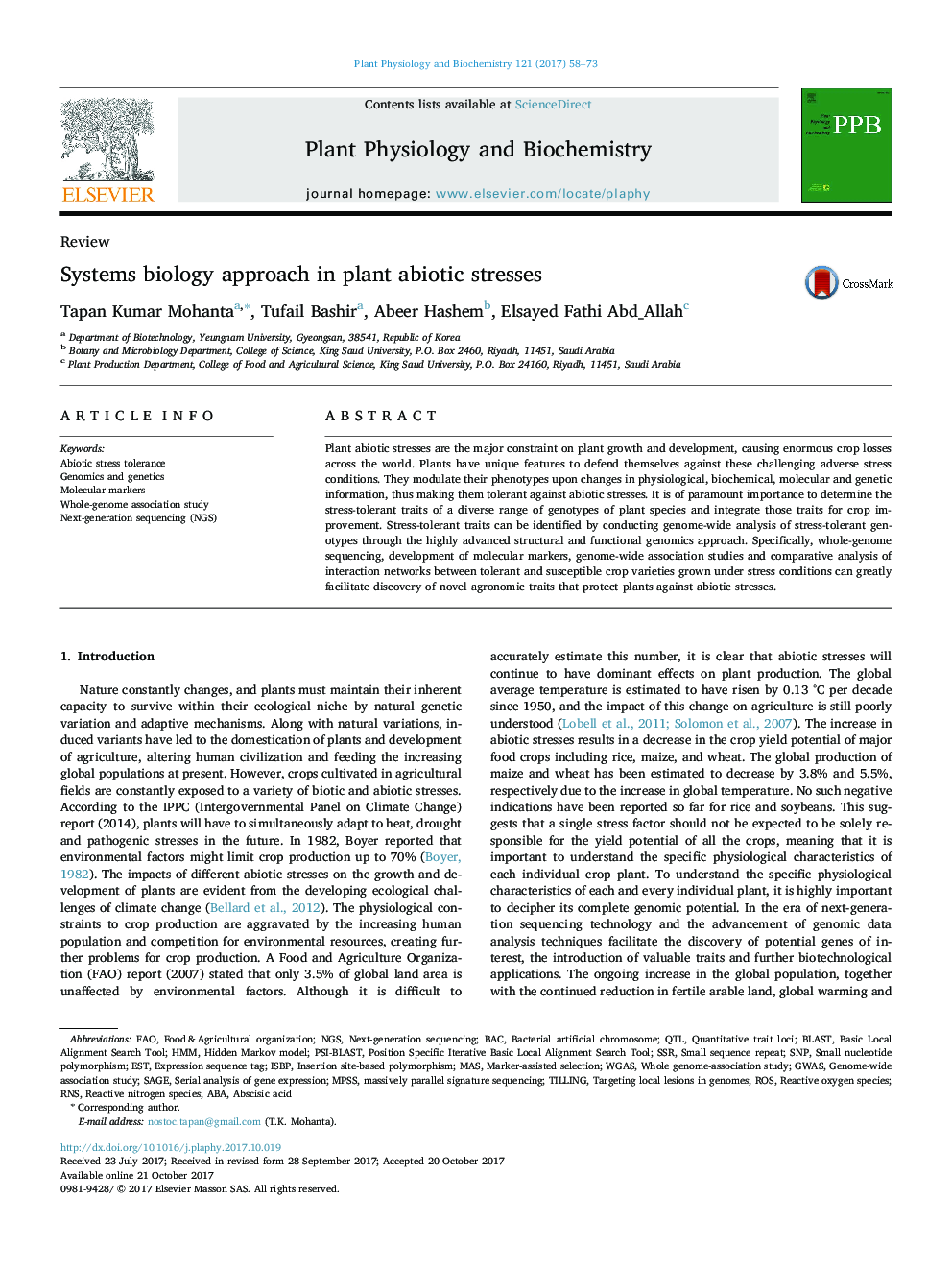| Article ID | Journal | Published Year | Pages | File Type |
|---|---|---|---|---|
| 8353701 | Plant Physiology and Biochemistry | 2017 | 16 Pages |
Abstract
Plant abiotic stresses are the major constraint on plant growth and development, causing enormous crop losses across the world. Plants have unique features to defend themselves against these challenging adverse stress conditions. They modulate their phenotypes upon changes in physiological, biochemical, molecular and genetic information, thus making them tolerant against abiotic stresses. It is of paramount importance to determine the stress-tolerant traits of a diverse range of genotypes of plant species and integrate those traits for crop improvement. Stress-tolerant traits can be identified by conducting genome-wide analysis of stress-tolerant genotypes through the highly advanced structural and functional genomics approach. Specifically, whole-genome sequencing, development of molecular markers, genome-wide association studies and comparative analysis of interaction networks between tolerant and susceptible crop varieties grown under stress conditions can greatly facilitate discovery of novel agronomic traits that protect plants against abiotic stresses.
Keywords
ISBPABASSRMPSSHMMmassively parallel signature sequencingNGSsmall nucleotide polymorphismRNSQTLBACPSI-BLASTROSBasic Local Alignment Search ToolESTabscisic acidmarker-assisted selectionBlastMASSerial analysis of gene expressionAbiotic stress toleranceexpression sequence tagQuantitative trait lociNext-generation sequencingTILLINGNext-Generation Sequencing (NGS)SAGEFAOHidden Markov modelGenome-wide association studyGWASMolecular markersSNPbacterial artificial chromosomereactive nitrogen speciesReactive oxygen species
Related Topics
Life Sciences
Agricultural and Biological Sciences
Plant Science
Authors
Tapan Kumar Mohanta, Tufail Bashir, Abeer Hashem, Elsayed Fathi Abd_Allah,
